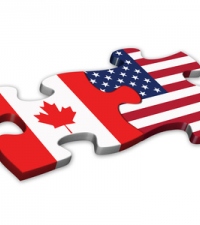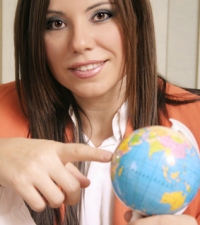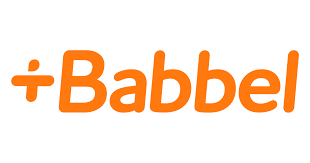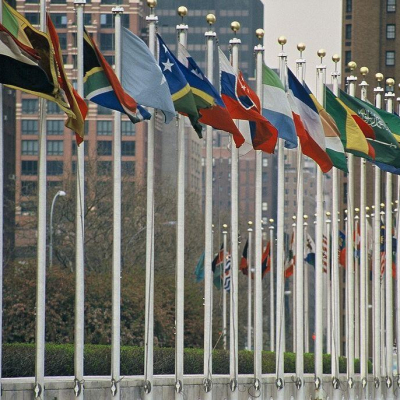International Schools in Romania

You will find below a list of the most popular international schools for expats in Romania with fee information. The list includes nursery schools, primary and secondary (high) schools for you to find the right school to prepare for the International Baccalaureate and other accreditation in Romania. Schools usually follow the American or UK curriculums with English-speaking programs.
Education in Romania
Romania’s education system was once dictated by politics, but since 1990 the modern system is working to redefine itself. It is free and compulsary til the tenth grade, although most students continue to 12th grade with the baccalaureate. The school year begins in September and ends in June, divided into two semesters (September to January and February to June).
Kindergarten usually begins at age six with the preparatory school year (clasa pregătitoare) before first grade. Students may begin this as early as 3-years-old (grupa mică). Formal elementary school includes 4 more grades of primary school, then grades 5–8 of gymnasium. Nation-wide exams in eighth-grade determine where students will attend high school. High Schools are divided into:
- National College (Colegiu Național) — Most prestigious high schools in Romania,
- Military College (Colegiu Militar) — There are 3 high schools administered by the Ministry of National Defense that are extremely strict
- Economic College or Technical College (Colegiu Economic or Colegiu Tehnic) — High school with academic programs based on technical education
- Liceu (Standard High school) — Average high school providing different academic programs
- Grup Școlar — High school offering academic programmes in the field of technical or services education
The choice of high school curriculum does not limit the choices for university. High school students graduating from a College, Liceu or Grup Școlar must take the National Baccalaureate Exam (Examenul Național de Bacalaureat, known as the bac).
International Schools
International schools can be the perfect solution for an expat student (primarily multinational corporation executives, children of diplomats, NGO staff) in Romania. International schools provide similar standards of schooling around the globe, providing for an easy transition between schools whether they are in France or Vietnam.
There is usually local population, as well as an international student body. Schools may follow a curriculum model from the US, UK, France, etc. Primary instruction may be any language (and multiple languages are usually taught), but it is usually in English. Schools also provide internationally accepted accreditation such as the international baccalaureate.
Admission and enrollment procedures vary from school to school. Space is often limited and preference may be given to students based on nationality. Tuition tends to be expensive based on local standards, but offers high standards of learning, boast smaller class sizes, first-rate facilities, and extracurricular. Boarding facilities are available at some schools, but most only provide day classes.
Accreditation & Membership
- Council of International Schools (CoIS) is a non-profit association of international schools and post-secondary institutions which provides educational accreditation, teacher and leadership recruitment services, links to higher education, governance assistance and help with founding new schools.
- Middle States Association of Colleges and Schools (MSA) is among the premier accrediting associations in the world.
- Western Association of Schools and Colleges (WASC) is an official academic body responsible for the accreditation of public and private universities, colleges, secondary and elementary schools.
- New England Association of Schools and Colleges (NEASC) is an independent, voluntary, nonprofit membership organization which connects and serves over 1500 public, independent, and international learning communities in the US and worldwide.
- Council of British International Schools (COBIS) serves British International Schools around the globe, representing over 281 Member Schools in 79 countries and over 209 Supporting Member organisations.
- Association of Christian Schools International (ACSI) is an association of evangelical Protestant Christian schools.
- European Council of International Schools (ECIS) has a vision with five key aspects to help member schools; attracting, promoting and retaining talented staff, making use of tangible and intagible assets, managing information and intelligence, safeguarding integrity and standards, and facilitating transformation of learning ecosystems.
International Schools in Bucharest
American International School of Bucharest (AISB)
Address: 196 Pipera Boulevard
Voluntari, Ilfov County 077190 Romania
Tel: 40 21 2044300
Tuition Rates: €7,080 - 20,624 per year
AISB was founded in 1962 by the US Embassy to serve the American and international expatriate community. Classes are from Early Childhood through Grade 12 and curriculum is based on the American system. It is authorized to offer IB programs and is accredited by the NEASC and CoIS.
Mark Twain International School (MTIS)
Address: 25 Erou Iancu Nicolae Street
Baneasa Bucharest 077190 Romania
Tel: 40 730 800 933
Tuition Rates: Inquire at the school
MTIS is an international, co-educational school with bilingual (English-Romanian) programmes. It is the first school in Romania to offer the University of Cambridge ESOL Examinations and it is authorised to provide the International Baccalaureate. Along with academics, it has extracurriculars and athletics. It is a member of CoIS and ECIS.
- My Life Abroad -
A selection of expat stories

"A fun compulsive read!"
J. Matcham, Amazon
"I strongly advise people ready to live abroad to read this book!"
Patrice, Amazon

 5 Top International Education Systems For Expat Kids
5 Top International Education Systems For Expat Kids Same language, different ball-game
Same language, different ball-game Finding a job after earning your TEFL Certificate abroad
Finding a job after earning your TEFL Certificate abroad Babbel
Babbel Embassies and Consulates in Romania
Embassies and Consulates in Romania